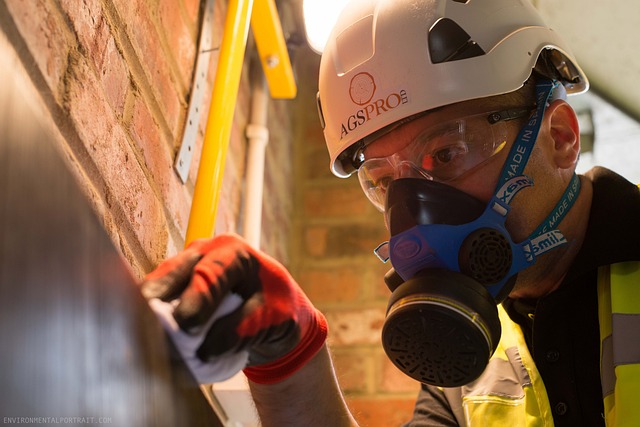Background checks, focusing on customer safety checks, are crucial for retail security. By verifying employment, education, and criminal records, retailers prevent theft, incidents, and breaches, fostering trust with customers. Regular updates and adherence to legal standards ensure informed hiring decisions, contributing to a peaceful shopping atmosphere. Robust customer safety checks through comprehensive screening protect against fraud and unauthorized access, enhancing store security and brand reputation.
In today’s retail landscape, enhancing customer safety through robust background checks is non-negotiable. This comprehensive guide delves into the critical role these checks play in protecting both consumers and businesses. We explore how thorough screening processes ensure qualified professionals, foster trust, and contribute to a secure shopping environment. From retail safety protocols to legal obligations and best practices, this article provides an essential toolkit for implementing effective customer safety checks.
- Retail Safety: The Role of Background Checks
- Protecting Customers: A Comprehensive Guide
- Qualified Professionals: Ensuring Trust and Security
- Legal Obligations for Background Screening
- Best Practices for Efficient Verification
- Enhancing Customer Confidence Through Checks
Retail Safety: The Role of Background Checks

Background checks play a pivotal role in retail, especially regarding customer safety checks. They are an essential tool for identifying potential risks and ensuring qualified professionals are employed. By verifying employment history, education, and criminal records, retailers can mitigate dangers and create a secure shopping environment. This process helps prevent theft, violent incidents, and other security breaches, thereby enhancing the overall customer experience.
Moreover, regular background checks demonstrate a commitment to consumer safety, fostering trust between customers and retailers. They act as a filter, allowing businesses to make informed hiring decisions and maintain a professional staff capable of handling various situations. Such proactive measures contribute to a peaceful and welcoming atmosphere, encouraging customers to shop without concern, knowing their well-being is prioritized.
Protecting Customers: A Comprehensive Guide

Background checks are a vital component in safeguarding customers and fostering trust within the retail industry. These thorough investigations delve into an individual’s history, ensuring that only qualified and trustworthy professionals interact with the public. By implementing robust customer safety checks, retailers can mitigate risks and create a secure shopping environment.
A comprehensive guide to protecting customers should emphasize the importance of verifying employment history, criminal records, and references. It must also outline the types of information screened, such as previous employment, education, and any relevant certifications. Regular updates and adherence to legal guidelines are essential to maintain the integrity of these checks, ensuring that retailers stay ahead of potential threats and maintain customer safety.
Qualified Professionals: Ensuring Trust and Security

In the retail industry, qualified professionals are essential for maintaining customer safety checks and ensuring a secure environment. Background checks play a pivotal role in verifying the integrity and competence of employees, thereby fostering trust among customers. By implementing rigorous screening processes, retailers can mitigate potential risks associated with fraudulent activities, theft, and unauthorized access to sensitive areas.
Qualified retail professionals are better equipped to handle diverse customer interactions, offer expert advice, and resolve issues promptly. These checks ensure that individuals with proven skills and reliable track records are entrusted with responsibilities crucial for business success and customer satisfaction. Ultimately, prioritizing customer safety checks through thorough background investigations contributes to a positive brand image and enhances the overall shopping experience.
Legal Obligations for Background Screening

In the retail industry, ensuring customer safety is paramount. One of the most effective tools to achieve this is through comprehensive background screening. Legal obligations mandate that employers conduct thorough checks on job applicants and employees to mitigate potential risks. These screenings are not just a best practice but a necessary step to fulfill legal responsibilities, especially in high-interaction roles.
Retail businesses must adhere to data privacy laws and industry-specific regulations when conducting background checks. This process involves verifying personal information, criminal history (if applicable), and previous employment details. By implementing robust customer safety checks, retail professionals can create a secure shopping environment, protect sensitive data, and maintain the trust of their clientele.
Best Practices for Efficient Verification

Implementing robust best practices is essential for efficient verification processes in retail settings, ultimately enhancing customer safety checks. Begin by standardizing and digitizing documentation procedures. This streamlines the review process, ensuring consistency across all employees. A centralized digital system allows quick access to verified information, reducing time-consuming manual searches.
Regular updates and cross-referencing are vital. Keep records up-to-date with frequent refreshes, especially for sensitive data like criminal background information. Cross-verify details against multiple reliable sources to ensure accuracy, minimizing the risk of employing individuals with undisclosed qualifications or potential red flags.
Enhancing Customer Confidence Through Checks

Background checks, often referred to as customer safety checks, play a pivotal role in fostering trust and confidence among retail consumers. By verifying the credentials and history of employees, businesses can assure customers that they are interacting with qualified and trustworthy professionals. This is particularly crucial in an industry where personal interactions are common, such as retail, where employees handle cash, process payments, and often have access to sensitive customer information.
These checks serve as a deterrent for potential dishonest behavior, ensuring that any concerns about employee integrity are addressed proactively. As a result, customers feel safer knowing that their transactions and personal details are in reliable hands. Enhanced customer confidence contributes to improved brand reputation and loyalty, ultimately driving business success in the competitive retail landscape.






